A Moment of Reflection under a Full Moon
The night of October’s full moon marks the Laotian Buddhist Boun Awk Phansa Festival, which signals the end of Khao Phansa, a time of meditation and restriction for followers of Buddhism, akin to Christian Lent. During the three-months of Khao Phansa, Buddhist monks remain in their temples, studying the Dhamma, while everyday laypeople abstain from personal sins, such as eating meat, drinking alcohol, and general physical misconduct. Yet Boun Awk Phansa brings monks and regular citizens together again with a massive celebration of gratitude and merrymaking to prepare for a new year. In Luang Prabang, the community decorates homes and temples with a plethora of lanterns: lotus flower candles line sidewalks, giant ten-point stars grace temple entrances, and string lights drape balconies. Families pay their respects to the Buddha, and everyone marches down the main street to the Mekong River in a music-blasting, hip-shaking parade of celebration for the grand finale.
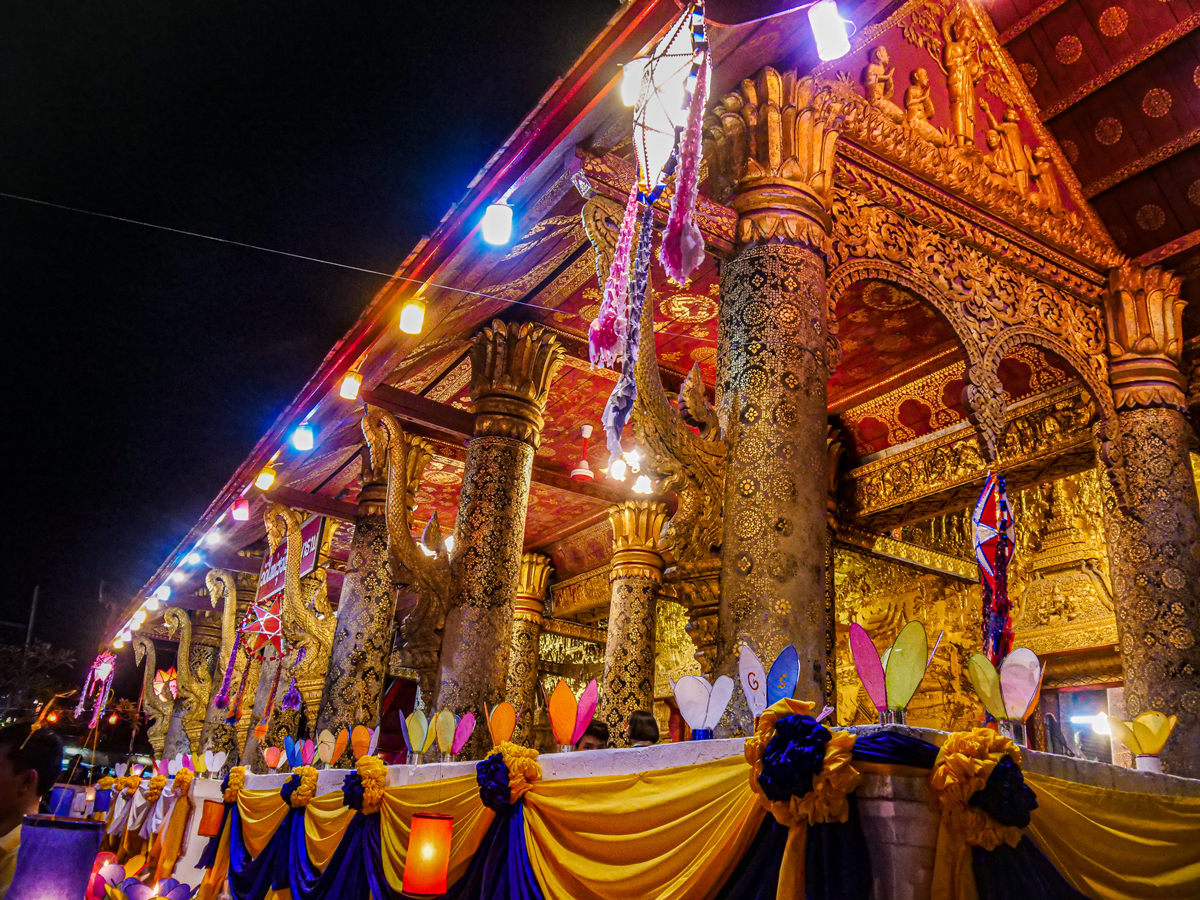
This year’s Boun Awk Phansa Festival also happened to be our last night of two weeks living in Luang Prabang. My travel partner & dear friend Taylor and I had noticed the slow increase in lanterns popping up across town two days before the festival. Our nightly strolls through the maze of neighborhoods revealed a holiday of familial closeness; aunts and uncles chattered over bowls of sticky rice in the evening air while their children lit tiny candles in shot glasses and parried sparklers like swords. Here, a father constructed a parade float out of tissue paper while his toddler daughter sat in the driveway playing with lanterns. There, a tattooed 20-something plunked away on his guitar and sang to an audience of neighbor kids under the glow of red, green, and blue string lights. It seemed better than Christmas.
The night of Boun Awk Phansa, our mismatched workaway cohort made the 20-minute walk towards the main street, led by our local Laotian friends and co-workers Eric and David. Long before we reached the center of town, the fading light revealed gargantuan golden lai heua fai parade floats, crowned with flowers and glowing with candles. Each float was fashioned to be a fearsome Naga, one of many protective serpent gods believed to live in the Mekong River. The Naga snarled at the growing throng from their majestic 10-foot height, but there was an irony to their apparent strength: each was constructed out of delicate tissue paper, highly susceptible to catch fire from any of the candles. Men balanced haphazardly on ladders to meticulously light each candle within the Naga from the end of a long flame-tipped pole. This was a fire hazard could never happen in America, Taylor and I agreed as we saw a group of laughing Laotian men swat out a Naga tail that had burst into flames a few floats down the line. At least Laotians still knew how to have fun.
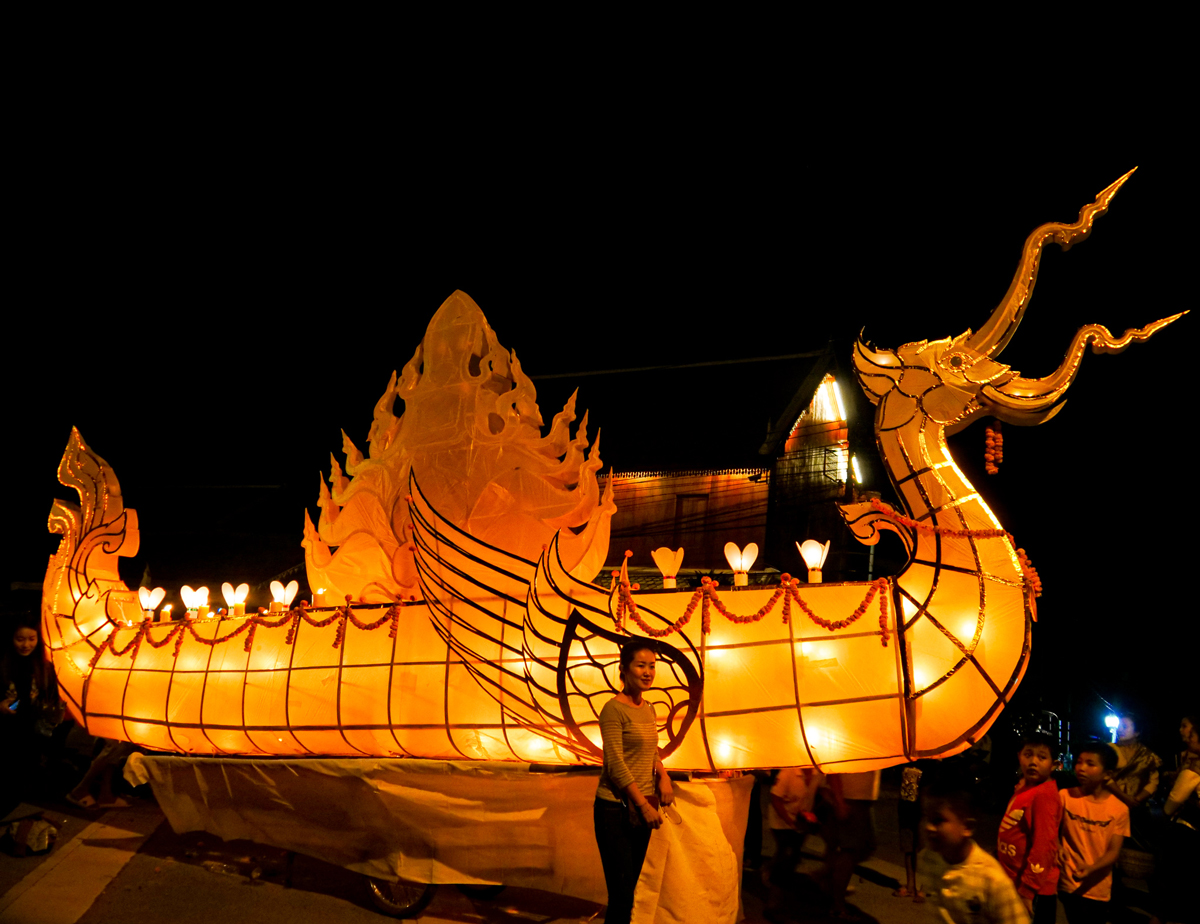
Our cohort split up among the chaos as we darted from float to float, our eyes and ears distracted by banging drum circles, women clad in sparkling traditional robes, and groups of children practicing their parade chants. After a few blocks, I found myself at the entrance of Wat May Souvannapoumaram, welcomed by a triad of star lanterns. A maze of lanterns criss-crossed through the courtyard, both strung on lines above and lined on the ground below, lighting up the smiles of chirping families and monks whose stoic faces were betrayed by shining eyes. Mamas posed their children in front of giant lanterns, papas knelt with their toddlers above the glow of the light, and giggling extended families crammed together to fit within a selfie. They reminded me of my own band of aunts and uncles and cousins during the holidays.
I crept up the temple steps and peered within the sparkling golden doorway. Barefoot templegoers lay prostrate before the great golden Buddha, who was surrounded by bouquets of orange and purple flowers, candles, food and drink offerings, and miniature Buddhas all left from people that night. My camera and I remained outside the temple; I had visited earlier in the week, and I felt the space should be used by actual Buddhists on their holiday. As I exited the temple, the parade of Naga lai heua fai had begun! Each float was marked by a lantern-bearing group dancing or marching before their Naga, some accompanied by giant speakers blaring traditional music, others by the steady beat of giant drums. Eventually, my friends found me, and we began to walk on the narrow sidewalk alongside the parade towards the Mekong River. We weaved around food stalls that prepared skewers of sizzling meat and dodged drunken friends that had broken their drinking fast with tall bottles of BeerLao. Where the main street began to curve left to meet the Mekong, we halted, stuck in a crowd that had gathered early in preparation for the upcoming main event. Our group eventually split again, too big to keep together in such a crowd. Eric moved ahead quickly, darting through the mass of chattering Laotians. Suddenly, we had caught up to the front of the parade, and the reason for the crowd congestion lay before us. One by one, each group in the parade launched their Naga floats from the docks into the Mekong River. Groups of men carefully removed the still-lit structures from their wheels and slid them into the water. The river current transformed the Naga into true water spirits, glowing with life from the candlelight within their bodies.
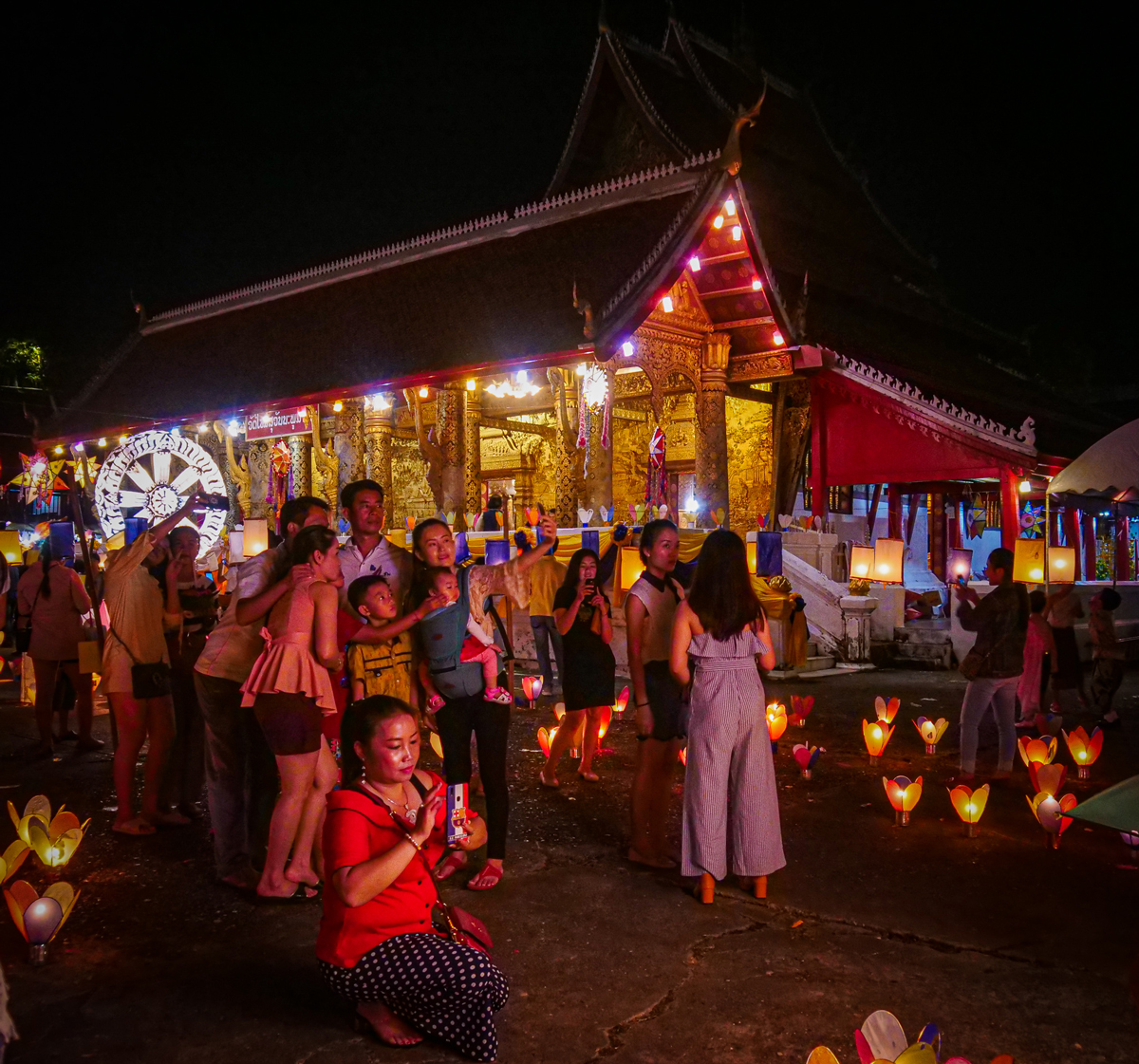
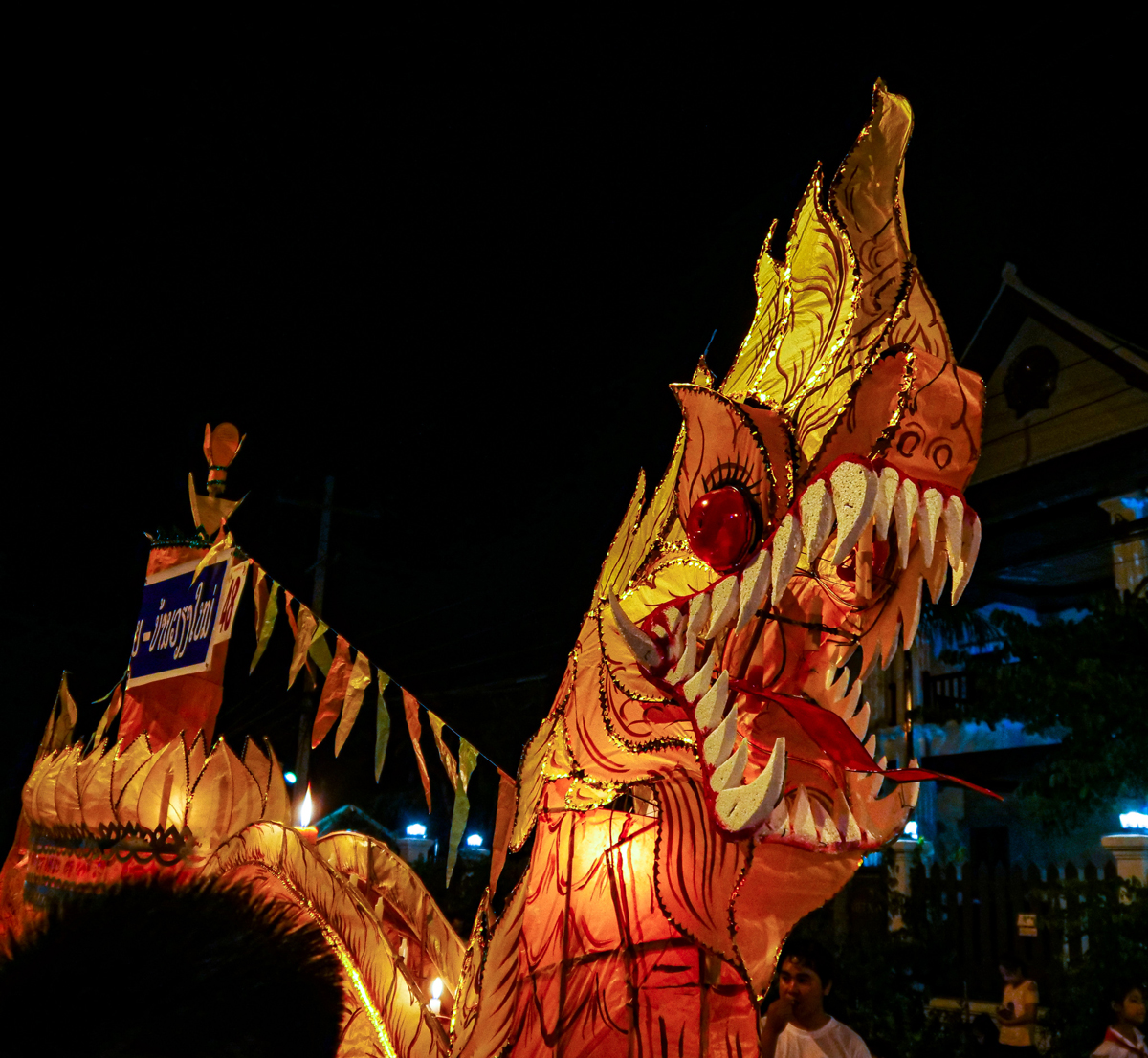
However, Eric informed us that this dock was not our final stopping point, and we should continue further down the river to see more. I noticed many Laotians were carrying these little bouquets of banana leaves and flowers that vendors had peddled on the streets for the past several days. They were Loi Ka Thong, a more personal offering to the Naga. Groups of families and friends would launch a Loi Ka Thong together after lighting the candle and incense gracing its top. We decided to buy one for our group, and as we paused at a vendor, I noticed each float had its own unique pattern of flowers and woven leaves. The bottoms were constructed out of sturdy coconut, so these floats were totally eco-friendly. For a short while, we sat on a ledge to watch the Naga that floated down the Mekong, joined by hundreds of tiny Loi Ka Thong. The river truly felt alive with spirits.
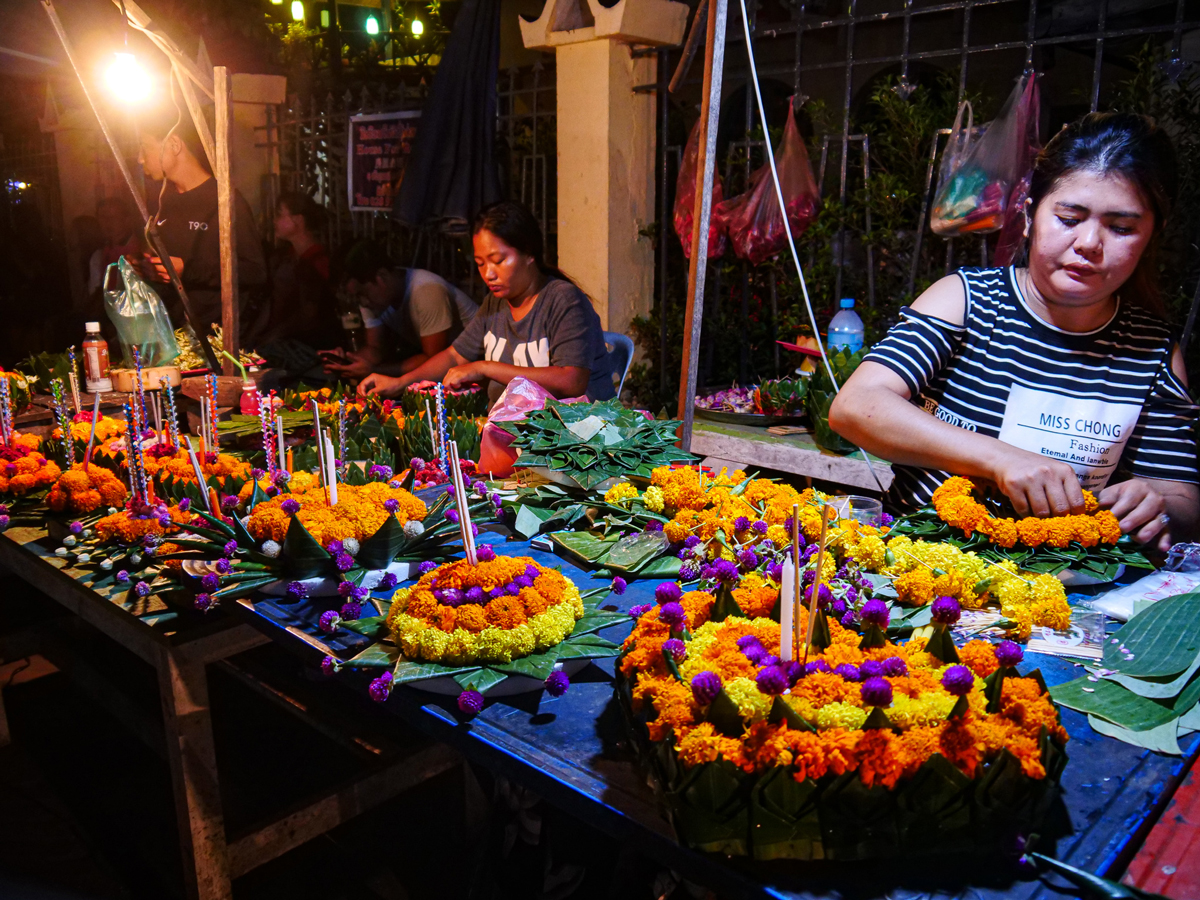
Soon, we made our way down to the riverbank to release our own little float, a bond of the friendship forged within so many nationalities over the past two weeks. Eric explained that these represented releasing bad luck and energy to allow blessings to flow in upcoming months. We each held our Loi Ka Thong for a few seconds. As it passed to me, I felt gratitude that I had been granted and taken opportunities to experience the world, that I happened to be here on this night, and that I was surrounded by kind and welcoming people. I prayed that all kinds of groups of people, travelers and immigrants and refugees alike, would be welcomed with empathy and understanding across the globe. I prayed to release
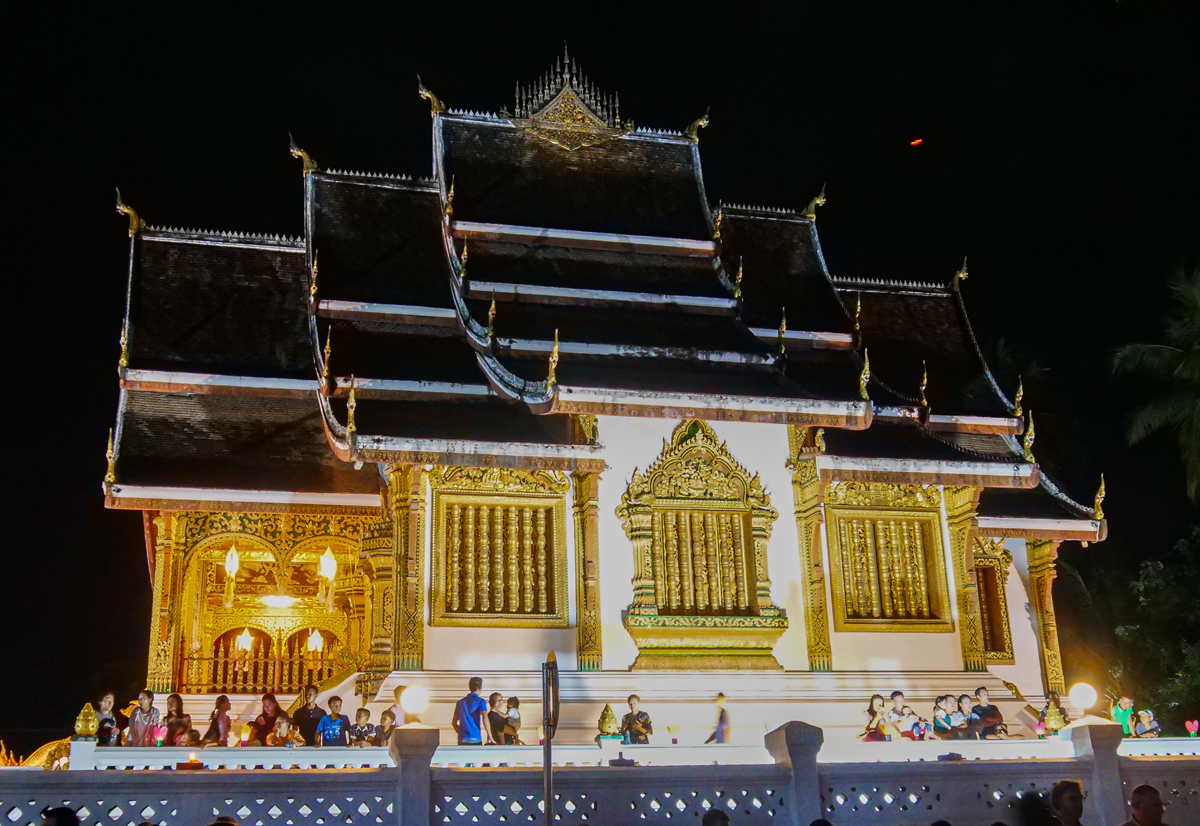
my own fears of the uncertainty of both my future and the future of this planet. I prayed for a personal renewal of love for self and others, for courage to follow my intuition, and for a chance to discern my calling in the global community. Eric took the Loi Ka Thong last, pressed it to his forehead in prayer, and set it in the dark water. For a few minutes, we watched the waves carry it away to join the procession of lights. After, we all embraced and headed back up towards the town in search of the rest of our group, a bathroom, and some popcorn. Somehow at only 22 years, fate had brought me to this religious holiday in Luang Prabang. It felt
like an oddly significant time in life, and maybe it was the blend of spirituality and symbolism with the mystery of night and warmth of so many lanterns and smiles. Maybe it was the fact that the tradition of these monks and faith in the Naga flowed as long as the Mekong had, despite the history of French colonialism within the buildings that the lai heua fai boldly passed in defiance. Maybe it was the fleeting nature of all these different floats that had taken days to make, whisked away in an instant, but a feeling of hope lay thick in the humidity of the air.
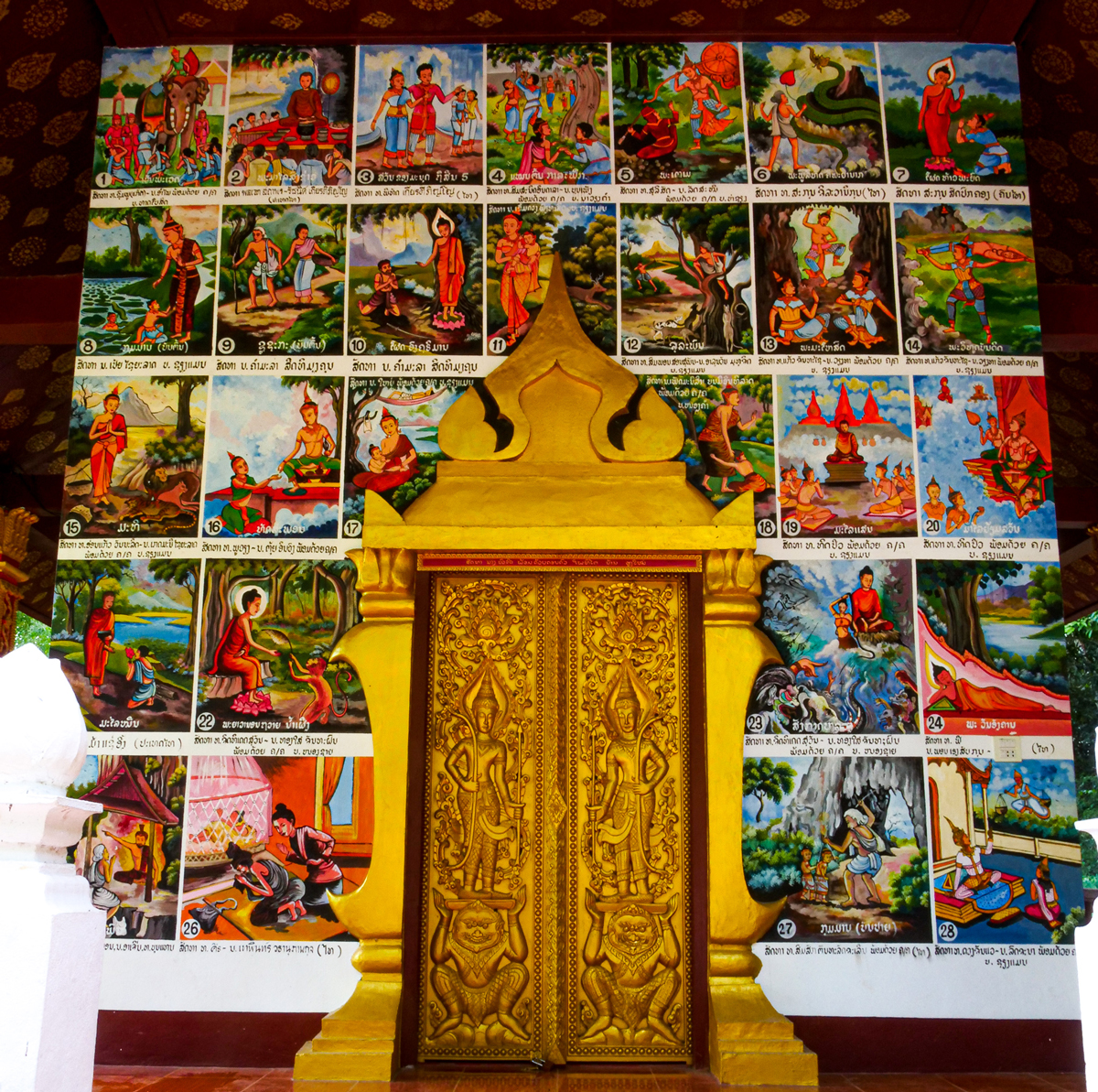
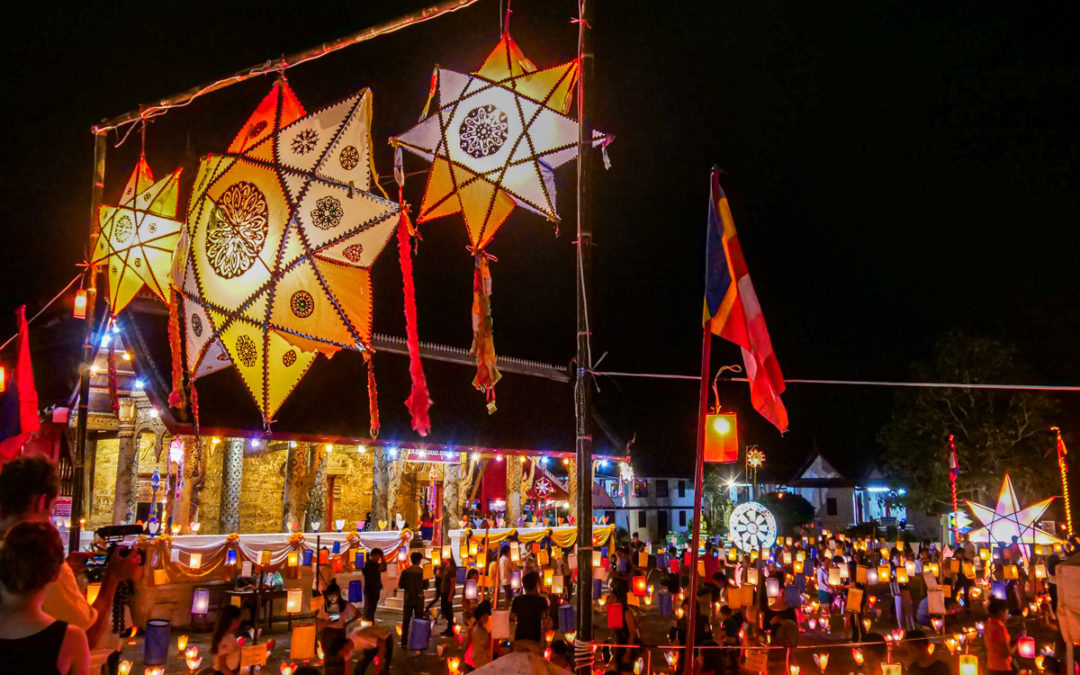
Recent Comments